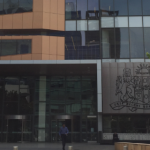Your Arrest Rights and Responsibilities in NSW

Being arrested is a traumatic experience. But knowing about your rights and responsibilities can make it a little easier, and help you to protect your interests in the longer term.
Two aspects of dealing with police to keep front and centre are to do with answering questions and being searched. Firstly, there’s no such thing as an “off the record” chat with police. Anything you say can be used against you at a later date, so it’s best to give your details but otherwise stay silent.
An exemption to this rule is where police issue you with a ‘form of demand’ in relation to an incident involving a motor vehicle. If they do this, you are required to provide the details of the person who was driving the vehicle at the time, if you have knowledge of this.
Another thing to be aware of both pre and post-arrest relates to consenting to a search, whether that be a pat-down or the increasingly routine strip search. You shouldn’t give consent to a search under any circumstances. While you should comply with the search, never say that you agree or consent, as this can cause an otherwise illegal search to become legal.
If you don’t consent and it is later established that the search was illegal, your lawyer may be able to have the charges against you dropped or thrown out of court, even if an illegal substance or item was found in your possession.
Powers of arrest
The police powers of arrest are contained in the Law Enforcement (Powers and Responsibilities) Act 2002 (NSW), also known as the LEPRA. A draft of this bill first appeared in June 2001. Its purpose was to consolidate ever-broadening police powers under the one piece of legislation.
Section 99 of the LEPRA stipulates that an officer can arrest a person without a warrant if they suspect on reasonable grounds, that they’ve committed a crime or they’re about to. Reasonable suspicion must be based in fact. It can’t be based merely on looking suspicious or being in a high crime area.
Under this section, police can also arrest a person to prevent them from fleeing, to enable identity inquiries, to ensure a court appearance, to obtain an item related to an offence, to preserve evidence, prevent witness harassment and to protect the safety of another.
Police can also arrest a person if there’s a warrant out for them to be taken into custody. Section 101 of the LEPRA sets out that an officer can arrest a person named in an arrest warrant, in which case the officer doesn’t have to be in possession of the document itself.
Regardless of whether you’re guilty or not, it’s best to go along with arrest procedures, as under section 546C of the Crimes Act 1900 (NSW), resisting arrest is an offence that carries a maximum penality of 12 months imprisonment and/or a fine of $1,100.
Police responsibilities
In relation to arresting a person, section 202 of the LEPRA states that an officer must provide evidence of being a police officer, unless they’re ununiformed at the time. They must also disclose the reason they’re arresting you.
Section 115 of LEPRA provides that, upon arresting a person, police have a six hour investigation period before they must either release or charge them. This period does not include ‘time out’, which are times taken travelling, contacting a lawyer or family, sobering up, using bathroom facilities or time spent on medical attention. Police can make a one-off application to a magistrate for a six hour extension of the investigation period.
Police have the power to photograph, fingerprint and palmprint an individual over 14 who’s been taken into custody. However, to take a DNA sample – usually via saliva or hair – without a person’s consent, a magistrate’s approval must be obtained under section 24 of the Crimes (Forensic Procedures) Act 2000 (NSW).
Your rights on arrest
Part 9 division 3 of the LEPRA sets out that a person taken into police custody has the right to communicate with an Australian legal practitioner, a relative, a friend, a guardian or an independent person. A foreign national can make contact with their nation’s consulate or embassy.
A person who has “inadequate knowledge of English” has the right to an interpreter. And an individual who is being held by police has the right to necessary medical attention, as well as access to reasonable refreshments and the use of toilet facilities.
Section 122 of the LEPRA provides that on arrival at a station, a custody manager must caution an arrested individual on their right to silence, which outlines that they don’t “have to say or do anything”, but anything they do “say or do may be used in evidence” against them.
And on being arrested, it’s best to only provide your name, address and date of birth and say nothing else until you get in contact with a good criminal lawyer, who’ll be able to advise you as to how to proceed from that point on.
Eroding the right to silence
However, over recent years, the right to silence in NSW has been watered down. At the request of NSW police, the O’Farrell government changed the law so that under certain circumstances the refusal to answer questions can later be taken as an admission of wrongdoing.
In 2013, section 89A was inserted into the Evidence Act 1995 (NSW). It provides that an officer can give a special caution to a person charged with a serious indictable crime – one that carries at least 5 years prison – which means refusing to answer questions can lead to an “unfavourable inference”.
This special caution must be delivered in the presence of a lawyer. So, this has led to a situation where lawyers don’t always attend the police station for fear they’ll hinder their client’s right to silence, as well as enable police to use tactics which elicit versions of events that suit them.
After being charged
If police choose to charge a person with an offence, they must then decide whether to release them on bail.
If police refuse bail, they must bring the arrested person before a magistrate as soon as practicable.
An application for release on bail can then be made in court, which is normally determined by considering whether the defendant poses an unacceptable risk to the community. However, there are some charges and situations where the defendant will need to overcome a more onerous ‘show cause’ test.
Regardless of the accusation, it is advisable for a person to contact a criminal lawyer as soon as possible in the process, as a lawyer can ensure the interest of their client is protected and work towards achieving the best possible outcome.








